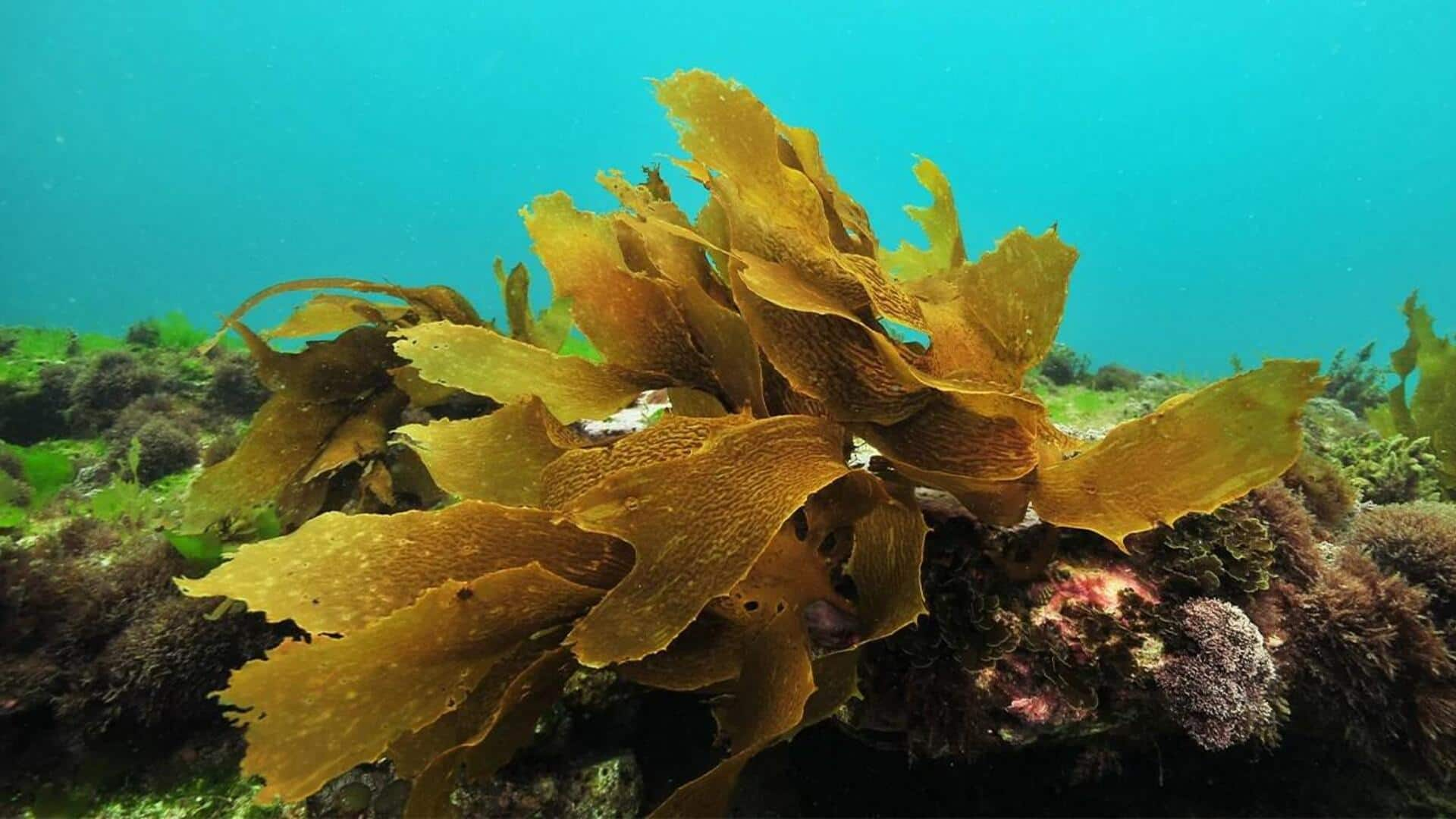
Eating this marine species might prevent Parkinson's disease
What's the story
A recent study has revealed that consuming the seaweed Ecklonia cava, could potentially slow down or even prevent Parkinson's disease. The research focused on the antioxidants present in this type of seaweed, commonly used in Asian cuisine. These antioxidants are believed to shield our neurons from harmful free radicals, thereby preventing the onset of Parkinson's disease.
Disease overview
Parkinson's disease: Neurological disorder with no known cure
Parkinson's disease is a neurological disorder that impacts the nervous system, leading to symptoms such as shaking, stiffness, and difficulty in movement. This condition occurs when neurons responsible for producing dopamine - a chemical crucial for movement control - begin to deteriorate in the brain. While not directly fatal, Parkinson's can cause severe complications that may result in death. Currently, there is no known cure for this disease.
Antioxidant research
Dietary antioxidants and their role in preventing Parkinson's
Previous studies have established a connection between dietary antioxidants and the prevention of Parkinson's disease. For instance, resveratrol - found in many plants and fruits like red grapes, berries, and peanuts - has been shown to protect dopamine-producing neurons from death in several mouse models of Parkinson's disease. Other substances such as ellagic acid, a-lipoic acid, and myrtenal have also demonstrated improvements in learning, memory performance as well as neuromuscular coordination in these models.
Antioxidant function
The role of antioxidants in combating free radicals
Our bodies generate harmful free radicals in response to environmental factors like ultraviolet (UV) rays and air pollution. These are also a natural byproduct of normal cellular processes. Antioxidants act as protectors, shielding cells from damage caused by these free radicals. Our bodies naturally produce antioxidants, but certain foods like Ecklonia cava are rich in them and can supplement our naturally produced antioxidants to help combat free radical damage.
Study findings
Japanese study explores Ecklonia cava's potential in Parkinson's prevention
In a recent Japanese study, researchers induced Parkinson's disease in mice using the pesticide rotenone. After inducing the disease, they fed some mice with antioxidants from Ecklonia cava and others with a regular diet. The results showed that dopamine-producing neurons in the brains of mice fed with these antioxidants appeared to be protected. Additionally, these mice exhibited fewer Parkinson's symptoms than those on a regular diet.
Lab results
Ecklonia cava antioxidants show promise in lab tests
The researchers also examined the impact of these antioxidants on cells grown in a lab and exposed to rotenone, which increases the production of free radicals, leading to cell death. They discovered that these antioxidants reduced the production of free radicals induced by rotenone in the cells, thereby preventing cell death. This finding suggests that polyphenols from Ecklonia cava - plant compounds with antioxidant properties - could be used to develop new treatments and prevention methods for Parkinson's disease.
Translation challenges
Translating animal model results to human applications remains challenging
Despite promising results from animal models and cells, it's important to note that these findings do not always translate directly to humans. This is due to differences in brain structures and functions between animals and humans, as well as the complexity of human cells. Parkinson's disease affects the entire brain and body over many years, involving various types of cells and interactions - a complexity that cell models often overlook.